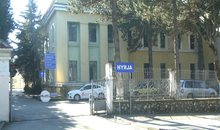
 Flash News
Flash News
Fight between teenagers, 15-year-old ends up in hospital
Kosovo Assembly constitution, proposal for secret ballot fails
Serious accident on the Peqin-Elbasan axis, two people seriously injured
'Fight, fight, fight'/ PD-ASHM towards historic victory, LaCivita mobilizes the campaign at the meeting with the candidates
Car hits pedestrian on Korça - Pogradec road, 43-year-old woman dies
The European Court's Decision on Golden Passports and the Consequences in Tirana
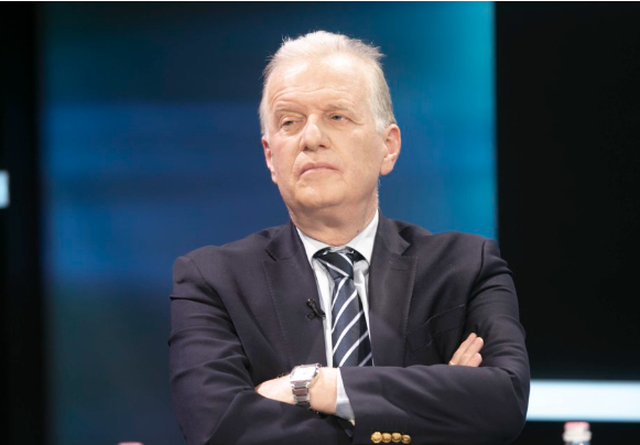
By Genc Pollo
How will the European Court decide: if it says it can't be done, we won't do it either; if it says it can be done, we will do it. More or less, this is what Edi Rama said in Tirana in March 2023 at the end of the Albania/European Union (Stabilization and Association Council) meeting in the presence of Mr. Borrell, High Representative for Foreign Policy, and Mr. Varhelyi, Commissioner for Enlargement.
It was about "golden passports" or granting citizenship to foreigners in return for payment or investment.
1-Golden passports as a problematic source of money
Rama had been engaged in this project for several years, participating in international events dedicated to "citizenship by investment", such as in London in November 2019, where he called the idea "the right way" and "something we should do". He explained that the European Commission was against the initiative, but here Brussels was wrong.
Golden passports were then practiced in three EU countries: Bulgaria, Cyprus and Malta. Brussels, rightly, saw this as a channel through which suspicious and dangerous individuals from third countries, including hostile states, could infiltrate. These passports were a window into risks related to national security, money laundering and corruption.
In fact, in Bulgaria and Cyprus, where scandals broke out, including videos of politicians accepting envelopes in exchange for the promise of a passport, Brussels' demarches led to the legal closure of this program. Only Maltese Prime Minister Muscat (Labour Party), who started this scheme in 2014, resisted Brussels in the name of "the sovereignty and interest of the Maltese people". This resistance continued even after the bribery scandals, and even after Muscat resigned when his government's involvement in the murder of an investigative journalist was proven. The next Prime Minister Abela, who turned out to have personally benefited by renting out his apartment to several Russian applicants for citizenship, continued the same line. The European Commission was forced to sue Malta for violating treaties and abusing "European citizenship". In fact, Malta did not simply give a Maltese passport, but as a member of the EU and the Schengen Area, it offered every neo-Maltese opportunities and privileges throughout Europe.
In Albania, Rama was forced to make the above statement (March 2023), but the government approved full legislation for the sale of passports, including the establishment of a special agency in the Ministry of Interior and the possibility that, a global precedent, the selection of applicants would be carried out by a concessionary company (PPP). The Albanian passport did not have all the qualities of the Maltese one, but it ensured free movement in Europe.
2-Court verdict against golden passports
On 29 April, the Court of Justice of the European Union ruled against Malta in the golden passport case, stating that the acquisition of EU citizenship cannot result from a commercial transaction. Such a "commercialisation" of citizenship is incompatible with the basic concept of EU citizenship, as defined by the Treaties. It violates the principle of sincere cooperation and undermines mutual trust between Member States in the granting of their citizenship.
Recognizing that member states are free to determine the conditions under which citizenship is granted, the court ruled that this must be done in accordance with EU law. The court said that member states cannot grant citizenship, and therefore EU citizenship, in return for predetermined payments or investments. Citizenship is based on “solidarity, trust and reciprocity of rights and obligations between a state and its citizens” and that Malta’s scheme, which effectively commercializes citizenship, is incompatible with these principles, the court underlined.
The decision leaves Malta, but also any EU member state, open to selling citizenship. As the Maltese opposition has said, our passports “have value, but not price.”
It is unlikely that Rama will react to this development and explain how and why he wanted to use or abuse an achievement achieved three years before he became Prime Minister. It is interesting to note that a problematic project with negative consequences for the country (and the EU) could not be stopped by the opposition, civil society, media or judiciary. This time the help came from the European Commission. The EU's interest fortunately strictly coincided with the interest of Albania. Unlike the cases of some official from Brussels who may verbally express himself in general favor of the rule of law and against abstract corruption but with gestures and other things signal sympathy for the authoritarian and kleptocratic regime of Edi Rama.
Anyway, thank you to the Commission for that too.
(The author is President of the Paneuropa Albania movement)
Latest news



Forza Italia MP: Only Sali Berisha as Prime Minister can lead Albania to Europe
2025-05-01 21:29:47

For those who were scared by Tomorr Alizoti
2025-05-01 21:05:21
Berisha challenges Rama: You promised free healthcare, come here and keep it!
2025-05-01 20:56:58



The six best foods against stomach bloating
2025-05-01 20:04:09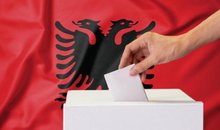

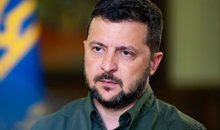
Zelensky: We want peace, Russia responds with attacks
2025-05-01 19:22:07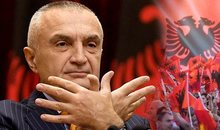

Berisha: The contract in the US is not just for the DP, but for every Albanian!
2025-05-01 19:08:14
Fight between teenagers, 15-year-old ends up in hospital
2025-05-01 18:44:17
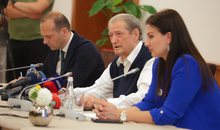



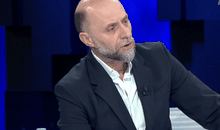

Demi Moore named the most beautiful woman in the world for 2025
2025-05-01 17:34:10
Waltz to step down as Trump's national security adviser
2025-05-01 17:24:25

What has Albania exported the most?
2025-05-01 16:49:18
Accident at 9-story building in Tirana, two injured
2025-05-01 16:47:16
How is lifestyle affecting health? Expert: Addictions are causing malnutrition
2025-05-01 16:32:09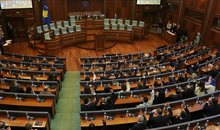
Kosovo Assembly constitution, proposal for secret ballot fails
2025-05-01 16:22:35
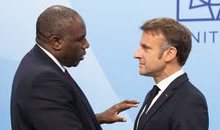
Britain in talks with France and Saudi Arabia on recognizing Palestinian state
2025-05-01 15:57:30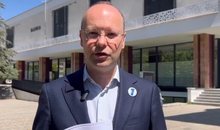

Russian drones strike major cities in Ukraine
2025-05-01 15:39:45
Farmers in difficulty, Egyptian potatoes outstrip Steblevë's
2025-05-01 15:31:36
Serious accident on the Peqin-Elbasan axis, two people seriously injured
2025-05-01 15:15:25
Inaugurated a few months ago, Zhupa: Handball stadium, dangerous for children
2025-05-01 15:10:19
Eurostat: Albanians are paid less, but have the longest working hours in Europe
2025-05-01 14:57:32
The most effective vitamins for strengthening the immune system
2025-05-01 14:53:06
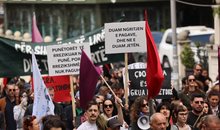
May 1/ Workers in Kosovo protest for their rights, demand wage increases
2025-05-01 14:33:55

Roven Zeka met in the cell, SPAK investigates 4 police officers, phones seized
2025-05-01 14:17:09
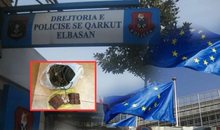



Xhaferri: Pro-Rama polls are manipulated by incinerator payments
2025-05-01 13:23:16
51-year-old woman disappears in Kukës, search begins
2025-05-01 13:02:20

Fallen in England, 32-year-old woman dies after falling from parachute
2025-05-01 12:44:54
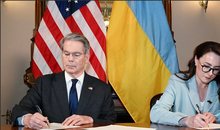




Staged explosion in Elbasan, head of family wanted asylum in the EU
2025-05-01 11:17:10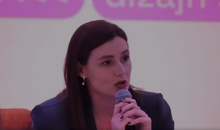
Muzhaqi: ChatGPT prepared a very beautiful speech for me
2025-05-01 11:11:29
Berat Prosecution seeks 6 years in prison for pedophile who molested a minor
2025-05-01 10:53:00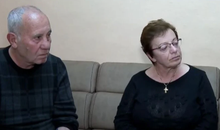

TNT explosion in Elbasan, police react: Cameras have filmed the perpetrator
2025-05-01 10:28:31
7x7 doesn't make 6 million for us, but 33 thousand euros!
2025-05-01 10:23:13
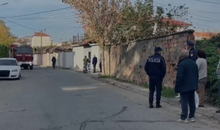
TNT explosion in an apartment in Elbasan
2025-05-01 10:03:01
Accident on the "Memaliaj-Krahës" axis, 71-year-old man loses his life
2025-05-01 09:44:45
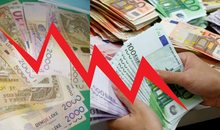

Vehicle bombed in Tirana, explosives placed in front tire
2025-05-01 09:10:30
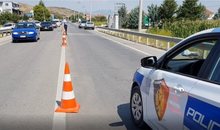
Car hits pedestrian on Korça - Pogradec road, 43-year-old woman dies
2025-05-01 08:39:39
Sunshine and temperatures up to 30 degrees Celsius, weather forecast
2025-05-01 08:21:48
Today is Workers' Day, what does May 1st represent?
2025-05-01 08:05:44
Posta e mëngjesit/ Me 2 rreshta: Çfarë pati rëndësi dje në Shqipëri
2025-05-01 07:55:45
Journalist: Rama used the money to lobby for himself, not for Albania
2025-04-30 22:54:10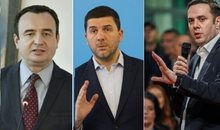
Kurti's invitation to constitute the Assembly, PDK responds, LDK refuses
2025-04-30 22:36:18





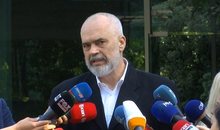
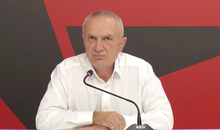

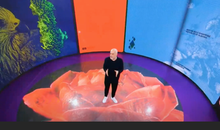


Fiscal peace or electoral coup?! Businesses owe 1.6 billion euros to the state
2025-04-30 18:59:05


Finland passes law banning cell phones in schools
2025-04-30 18:00:25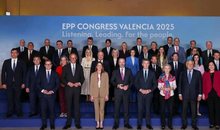

Italian court overturns Hysaj's conviction, Albanian defender fined 40,000 euros
2025-04-30 17:32:13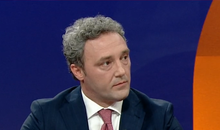
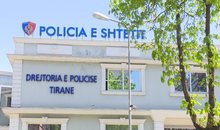

Minerals deal with US could be signed within next 24 hours, Ukraine confirms
2025-04-30 16:53:19

Stress at the office can be more dangerous than smoking!
2025-04-30 16:18:54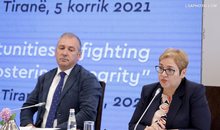
BKH leader Aida Hajnaj seeks a second 5-year mandate
2025-04-30 16:18:43
